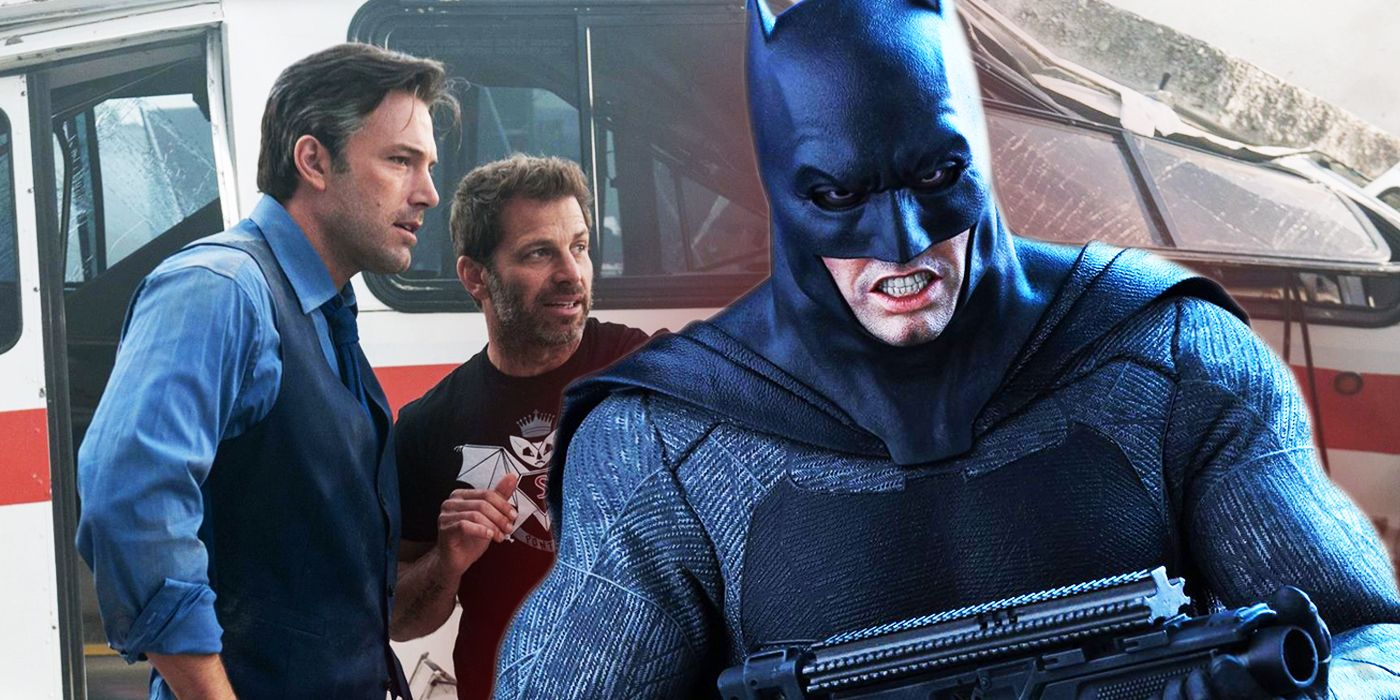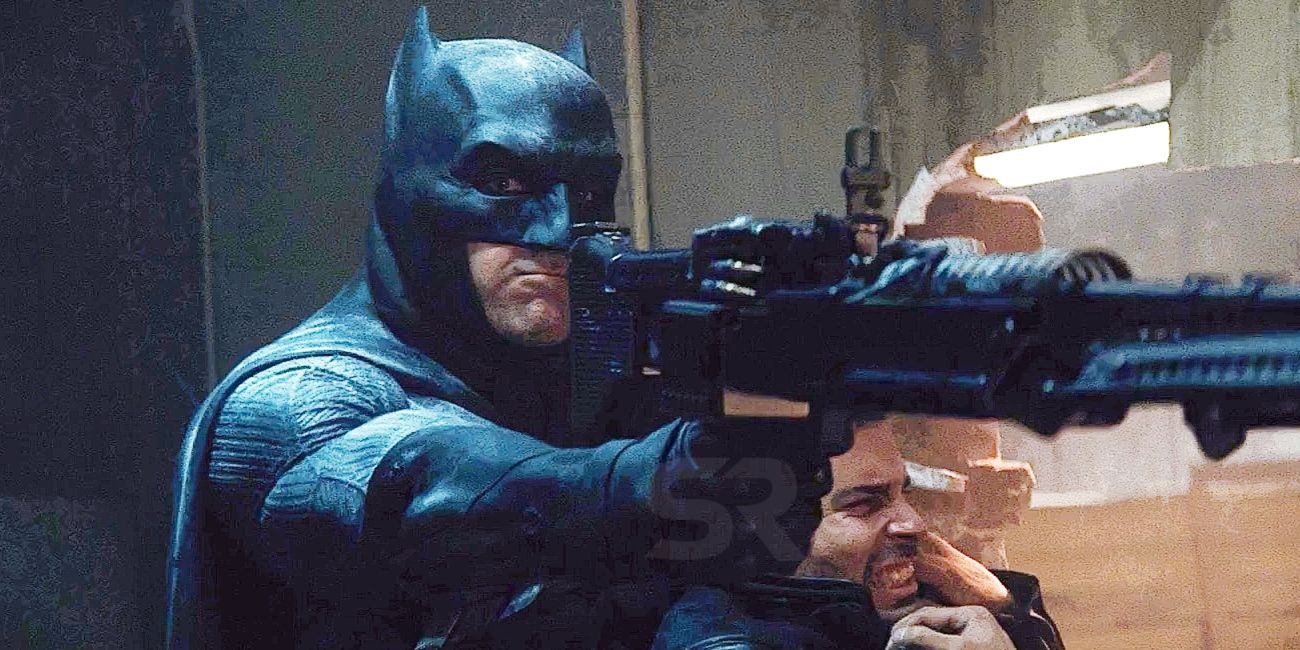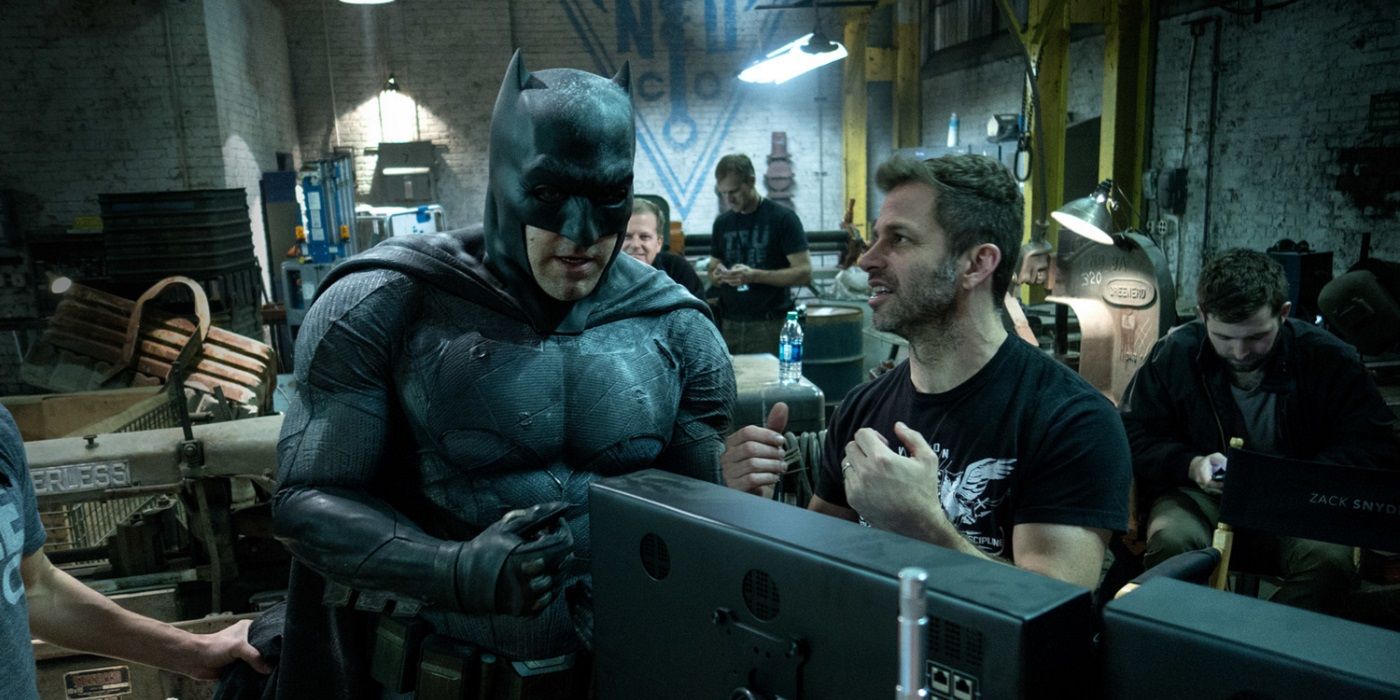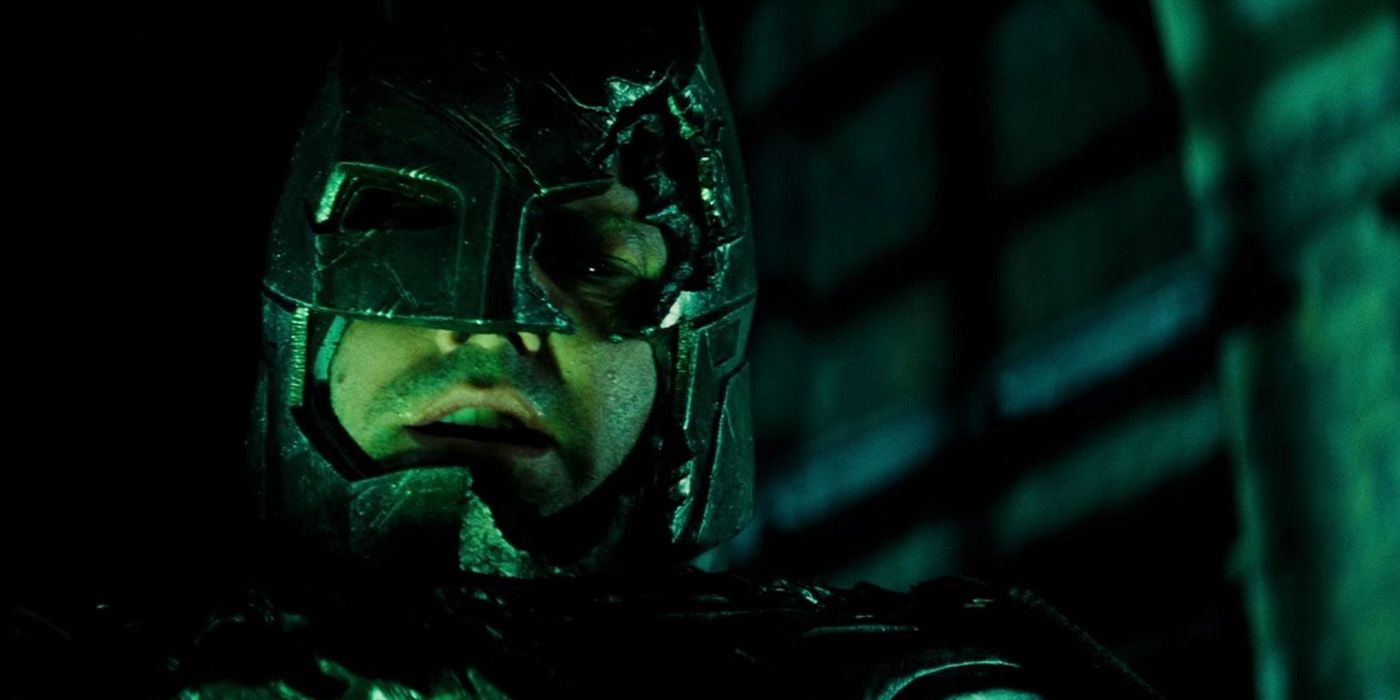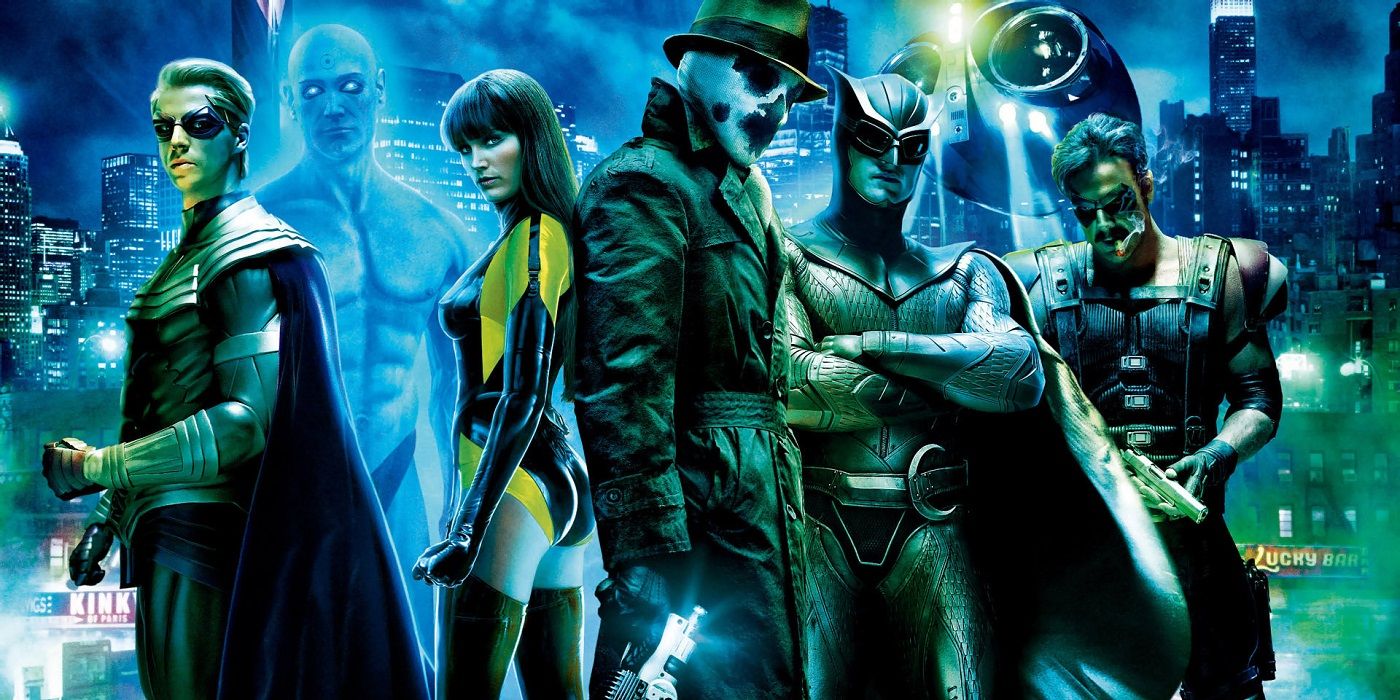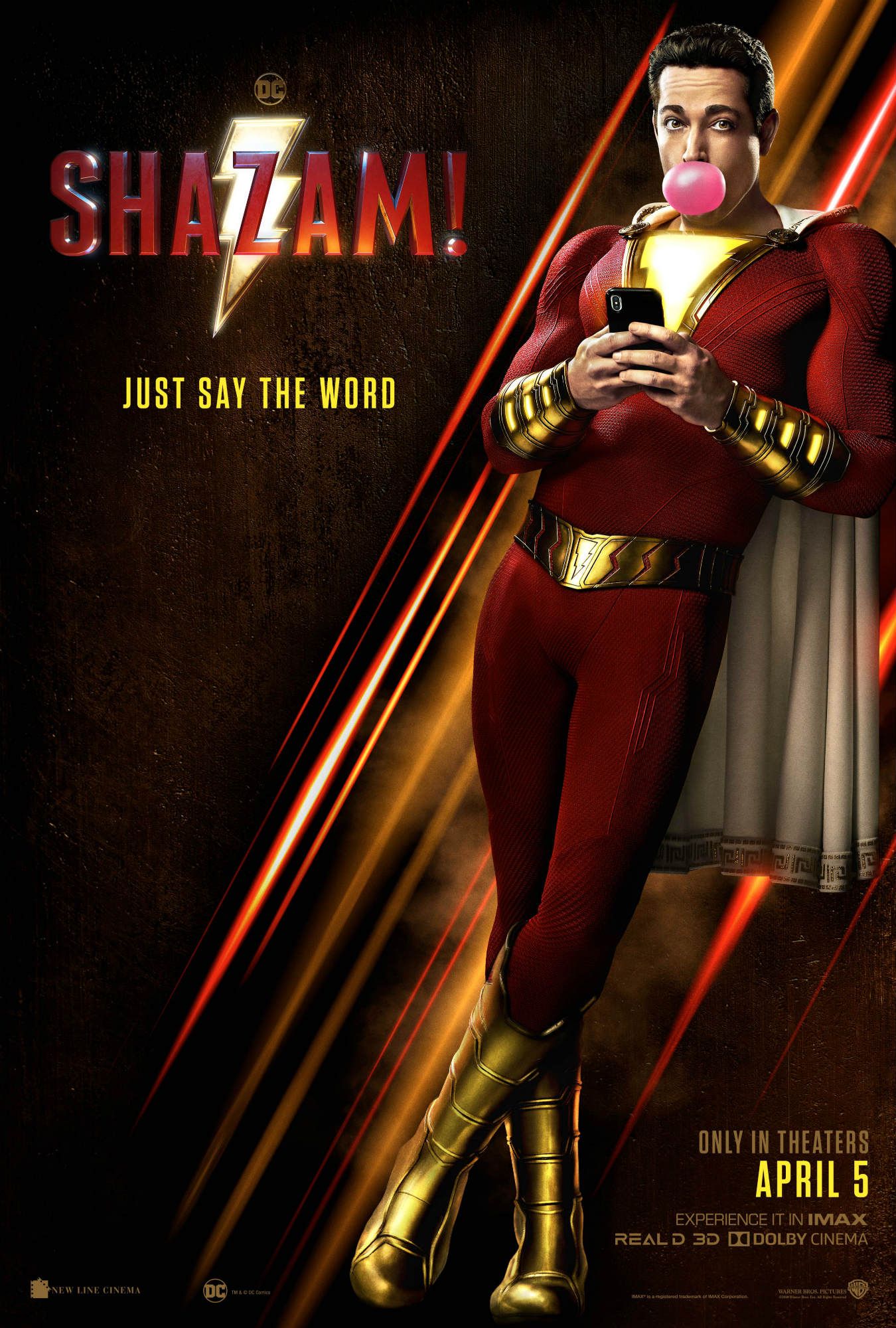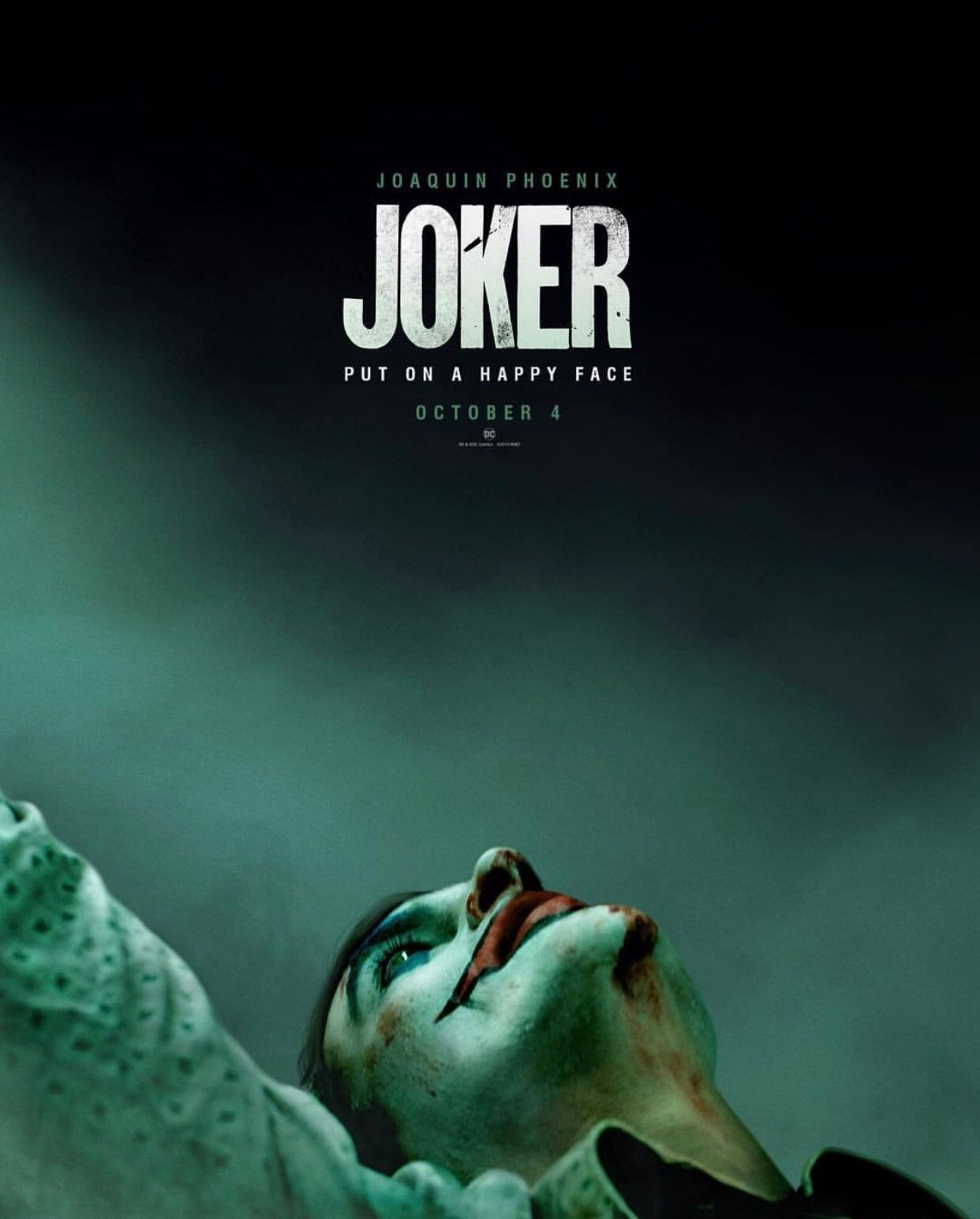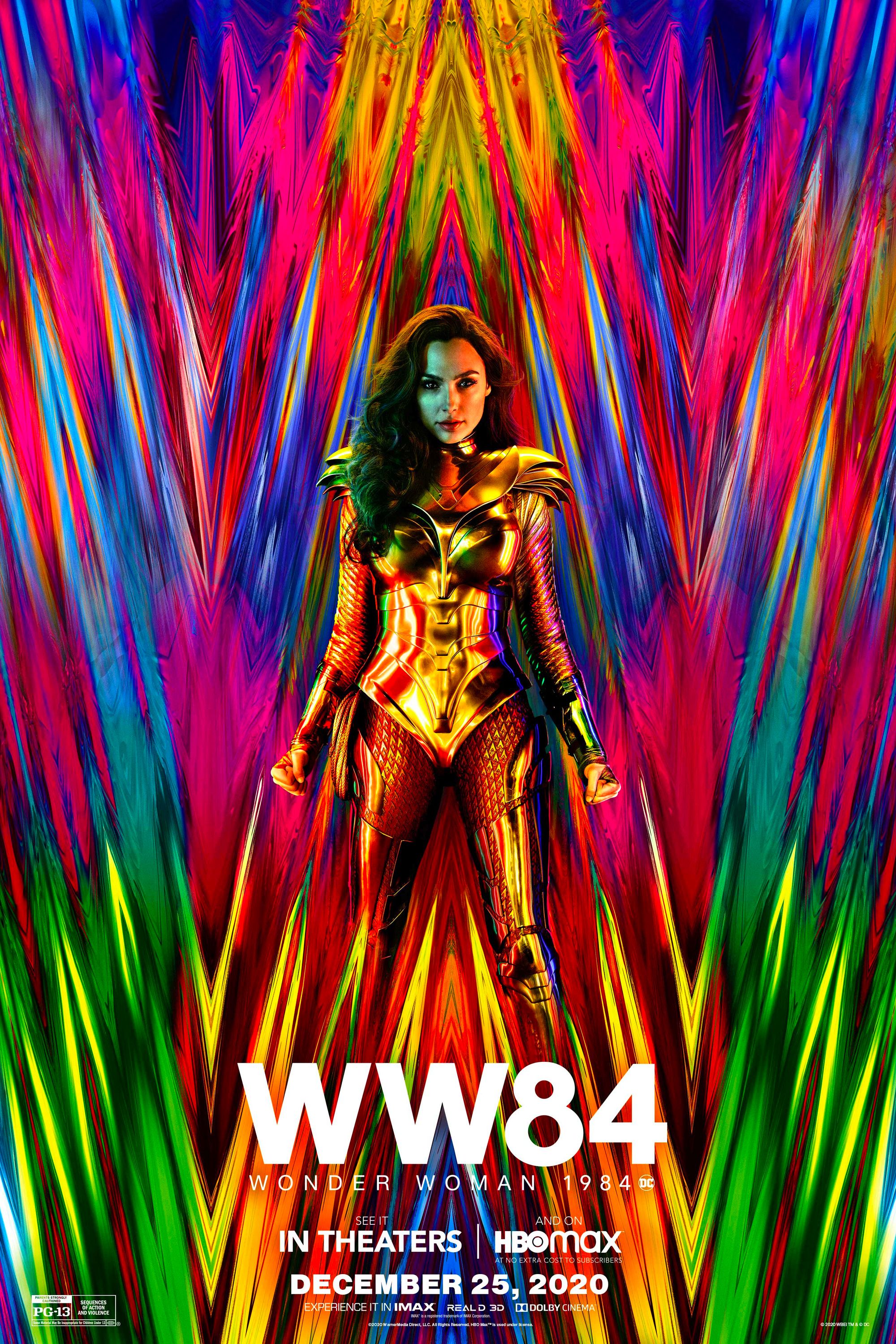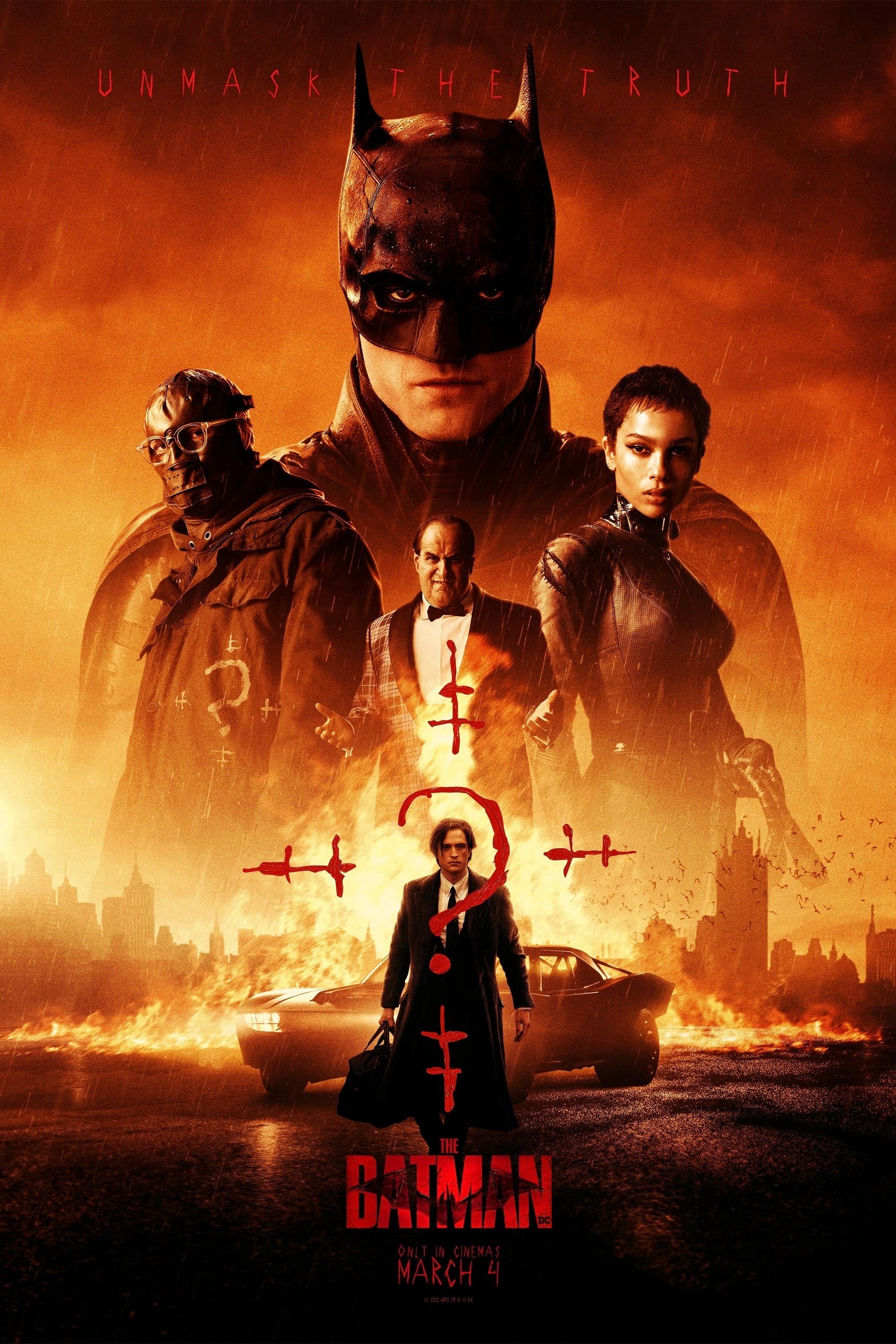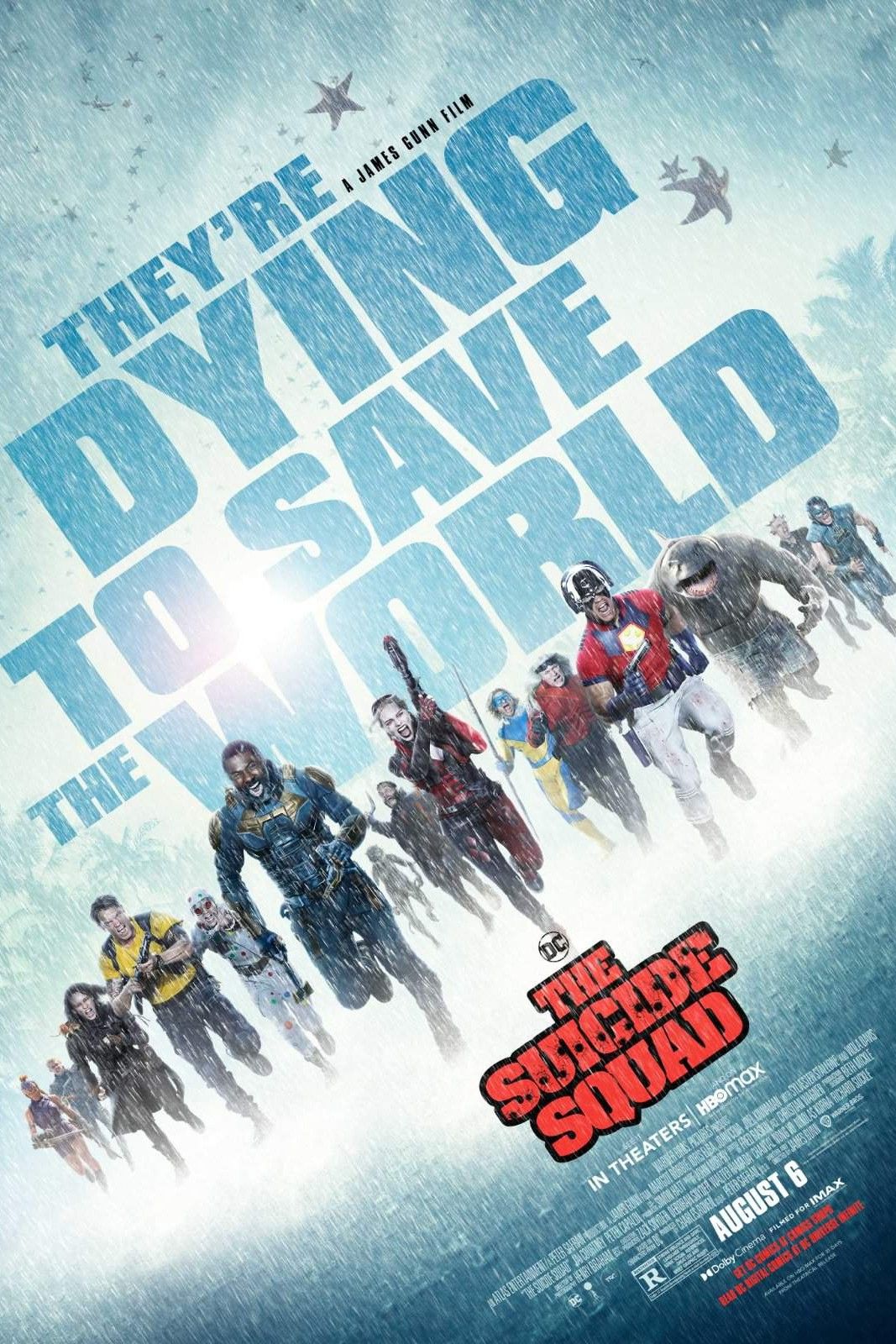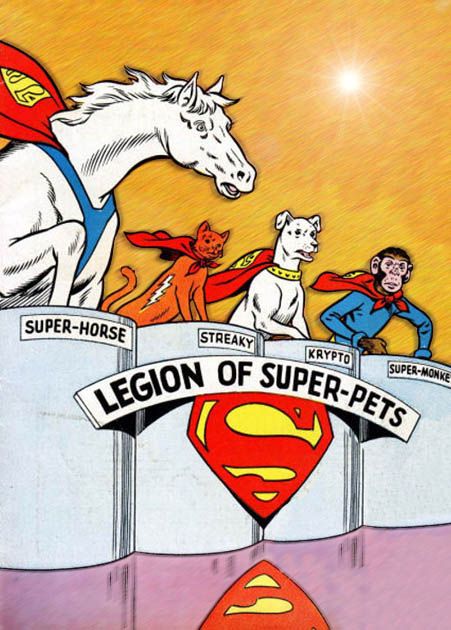Director Zack Snyder has defended his depiction of a murderous Batman in Batman v Superman: Dawn of Justice, but his new rationalization for Bruce Wayne's killings merely emphasizes the flaws in his approach. The controversial filmmaker has become an influential champion of edgier comic book movies since he adapted Frank Miller’s 300 in 2007. Snyder followed this up with the cult favourite Watchmen in 2009, before Warner Bros. tasked him with the formation of the DCEU. Throughout Man of Steel and Batman v Superman, Snyder chose to re-envision Superman (Henry Cavill) and the Dark Knight (Ben Affleck) in a different way than before. Whilst the sentiment was admirable, this proved to be a highly controversial decision.
Despite occasionally killing evil-doers in his earlier comics, the consensus among fans and cinema-goers is that Batman doesn’t (and shouldn’t) use lethal force in his war on crime. Indeed, many of these homicides have been retconned or explained as alternate versions and prototypes of the “true” Batman. Nevertheless, the sight of a hardened Bruce Wayne dispatching goons in Batman v Superman instigated a seismic dispute that continues to echo throughout pop-culture.
Related: Casting The New Batman Actor: The Best Ben Affleck Replacements
Since departing Justice League after a family tragedy, Snyder has rarely discussed his tenure or the backlash to his creative choices. But during the recent Zack: Snyder: The Director's Cuts charity event at ArtCenter College of Design in Pasadena, Snyder staunchly stood by his version of the DC universe and its premier Caped Crusader. Naturally, Snyder is entitled to his own opinions and is free to defend his interpretation of this pop culture icon. However, several of his comments about Batman’s killings belied a highly flawed reading of the character that needs to be addressed.
- This Page: Zack Snyder's Defence Of Killer Batman
- Page 2: Why Snyder Is Wrong About Batman (& Watchmen)
Zack Snyder Made Cinematic Batman A Proper Killer
Firstly, it must be remembered that, in the same way that Batman killed in his comics, the Dark Knight’s onscreen murdering was not a new phenomenon by 2016. Certainly, Tim Burton’s original Batman ended with the Joker (Jack Nicholson) being dropped to his doom thanks to some well-placed Batrope. One of the Penguin’s (Danny DeVito) henchman was later dispatched by Batman (Michael Keaton) cheekily stashing a bomb in his belt in Batman Returns.
Similarly, Two-Face (Tommy Lee Jones) fatally lost his footing due to Batman’s (Val Kilmer) intervention in Batman Forever. And, even though Christopher Nolan heavily foregrounded Bruce’s (Christian Bale) “one rule” across The Dark Knight Trilogy, his version of the Caped Crusader still left Ra's al Ghul (Liam Neeson) to die in Gotham’s collapsing monorail and ensured that Talia al Ghul (Mario Cotillard) was crushed to death in her truck.
Related: Every Batman Movie Ever, Ranked
The most notable aspect of most of these cases is not just the overall lighter tone of these films, but the fact that they Batman either kills in a somewhat indirect manner, or that they (mainly) occur in desperate, climatic situations.
In contrast to these previous adaptations, Snyder’s Batman is far more overt in his displays of brutality. Batman v Superman showcases a vigilante who wilfully runs goons over in his Batmobile, guns them down with his Batwing’s turrets, or else pins them to the wall with their own knives. A major subplot of the movie, expanded in the Batman v Superman: Ultimate Editon, is Bruce branding criminals with a bat, leading to them being brutally murdered in prison (it's a little wonder Jared Leto's Joker has only lost his teeth). And, of course, the character's primary drive is his unshakable desire to kill Superman.
Zack Snyder's Defence Of His Murderous Batman
Disillusioned after twenty years of crime fighting, Ben Affleck’s Bruce has also lost his way due to the rage and helplessness that he feels after Zod’s (Michael Shannon) catastrophic attack on Metropolis. The plot of Batman v Superman organically supplies a narrative reason for Batman’s onscreen barbarity. But during his recent panel, Zack Snyder stressed that it’s simply more realistic to depict Batman this way. In the most divisive section of his Q&A, Snyder stated:
"Once you lost your virginity to this f***ing movie [Watchmen] and then you come and say to me something about like 'my superhero wouldn’t do that.' I'm like 'Are you serious?' I'm like down the f***ing road on that. It's a cool point of view to be like 'my heroes are innocent'…That's cool. But you're living in a f***ing dream world,"
Snyder cites real-life crimes of embezzling money and “committing atrocities” as the kinds of actions that heroes would involve themselves in if they were more grounded. In reality, yes, few (if any) individuals are as perfect as fictional characters. And while conflict does make them more realistic and relatable, expecting these characters to be less flawed than ourselves is kind of the point of fiction. Its purpose isn’t just to hold up a mirror to reality, but to explore and escape from it in ways that cannot be achieved otherwise.
Related: Batman AND Superman: World's Finest Could Solve All the DCEU's Problems
In his Q&A, Snyder explained that his personal stance towards Batman derives from Alan Moore’s seminal graphic novel, Watchmen, which depicted an alternate, grounded reality, where masked vigilantes exist – yet they have been outlawed. Against the backdrop of a looming nuclear war, the dubious morality of these remaining heroes – and superheroes by extension – comes under scrutiny when one of their number is murdered. Watchmen has proved to be one of the medium’s most defining works, something that Snyder wholeheartedly approves of:
“I love more than anything Superman and Batman - but in the same way that Alan Moore was ...like, ‘Okay no, they do this,’ clearly this is a response. Watchmen talks about comic books in the same way that this movie talks about comic book movies, but it talked about comic books at their most - they were broken, so he was just addressing that.”
From this, we can clearly gather that Snyder attempted to apply Moore’s approach in Watchmen to Batman, to fix what he saw as being broken in making the character truly real. In following Snyder’s logic, it would appear that Batman shouldn’t be examined in any other manner than gritty realism, because Watchmen forever set the genre on this seemingly correct course.
Again, Snyder has free reign to interpret Batman in this way. After all, innovation has made the superhero genre what it is today. But there are failings in this deconstructive mindset, namely that by examining a subject (in this case, Batman) there needs to be a statement about its fundamental aspects, their meaning and the audience’s relationship to it. And this is where Snyder’s assertions – and Batman v Superman – fall short.
Page 2 of 2: Why Snyder Is Wrong About Batman (& Watchmen)
Zack Snyder's Killer Batman Isn't A Commentary
If Zack Snyder and his defenders are to be believed, Bruce Wayne’s grim psyche in Batman v Superman is a commentary on how his character would naturally progress. Admittedly, there is some initial sense in these ideas. With his sheer willpower - and his use of violence and intimidation – Batman’s darker brand of heroism could easily accommodate murder. Plus, killing murderous villains like the Joker can be viewed as a logical move if it were to spare lives down the line.
Related: There Are THREE Versions Of Justice League (Including The Snyder Cut): We Explain
Yet realism can only go so far when the character in question is a billionaire who dresses as a bat to fight super-powered criminals in a (typically) hyper-real, art-deco, gothic hybrid of a city. Even then, such a change like this would prompt many other alterations to the makeup of Batman’s world. For example, how would Batman’s villains continue to return, and why would staunchly moral characters like Commissioner Gordon still tolerate him?
Indeed, Batman v Superman briefly acknowledges that Batman has become meaner, and that fear and pain have corrupted him. Batman is intentionally positioned almost as a villain, yet the movie never commits to interrogating these ideas. All the hallmarks of Batman’s universe are not affected by Batman’s new brutality, so there’s no exploration of what implications there might be for his actions.
Moreover, because there’s no glimpse of how Batman was in his youth, the movie struggles to reflect back and comment on the kind of merciful or vengeful hero that Batman should be. A contrast could have been made between Batman’s nihilism and Superman’s traditional optimism, but Snyder’s Superman is similarly disaffected, so the connection doesn’t ring true.
Furthermore, there's a lack of necessity to this wrinkle in the character's canon. Bruce expresses an altruistic outlook after re-evaluating himself in the wake of the infamous Martha moment – along with Superman’s demise. It’s a solid enough character trajectory, but this arc doesn’t even require Batman to kill criminals to emphasize how broken he is. Certainly, other adaptations (such as Batman Beyond) articulated the drama and nuances of Batman’s waning moral code without the need for murder. In fact, Batman’s shocking willingness to kill Superman in Batman v Superman could demonstrate Bruce’s dishonor well enough on its own.
Related: How & Why The DCEU's Original Slate Changed So Much
Even accepting the inclusion of Batman’s bloodshed as part and parcel of this reimagining, the fabric of Batman v Superman simply doesn’t support this arc towards a more hopeful Caped Crusader. Certainly, in sparing Superman, Bruce realizes how he has been manipulated and how far he has fallen. Yet this epiphany is followed up with the brutal warehouse scene. Batman might be fighting to save someone’s life, but his heroism is undermined by the fury of his onslaught which, with its dynamic and engaging camera work, renders Batman’s skills in an awe-inspiring way. As such, even with Batman’s near-branding of Lex Luthor (Jesse Eisenberg) later in the movie, Snyder inadvertently undercuts whatever redemption Batman was meant to find by reveling in the blood lust onscreen.
Zack Snyder's Batman Comments Misunderstand Watchmen Too
The juxtaposition of Batman’s arc with his stylishly staged one-man battle recalls many of the criticisms that have dogged Snyder’s Watchmen adaptation since its release a decade ago. Certainly, many critics felt that Snyder’s heavily deferential take on Watchmen misunderstood the text’s main themes, and these comments seem to further confirm those assertions.
Threaded into real-world history, Watchmen introduced new characters such as Rorschach and Dr. Manhattan. Because they were fresh characters unencumbered by pre-existing backstory and expectation, writer Alan Moore and artist David Gibbons used them to question morality and heroism in ways that comic books had not done so before. Yet, coupled with The Dark Knight Returns, the grittiness of Watchmen ushered in the Dark Age of Comic Books, where superheroes and their worlds became more conflicted and darker than they had been previously.
Writers and publishers evidently believed that this was now the best way to tell superhero stories, even though the approach didn’t always suit the character (case in point: Spider-Man in Todd McFarlane’s Torment). But this had never been Moore and Gibbons’ intention. Indeed, they have long asserted that Watchmen was meant to deconstruct yet celebrate superheroes. Moore subsequently explained (via A.V. Club) that “It was meant to be one work on its own,” from an alternative, realistic viewpoint, and not a manifesto for how superheroes should or shouldn’t be written.
Related: Zack Snyder's Watchmen Forced Superhero Movies To Grow Up
In his Q&A comments, Snyder betrays that he’s taken the same kind of lesson from Watchmen that comic book writers of the 80s and 90s did: that the legends of our favorite superheroes can only be interrogated through a prism of grittiness. But we know that interrogating the hero’s values, makeup and legacy doesn’t have to be done in this way. The Lego Batman Movie is a spirited and metatextual tribute to Batman’s past and character, and though its tone and approach is as subjective as Batman v Superman’s, it emphatically proves that grittiness is not the only way to question the nature of the Caped Crusader’s heroism.
This is not to suggest that superheroes have questionable morals or have flaws of any kind, since there are plenty of characters who have, including Batman. But by exploring his ethics, mythology and code, the hope and optimism that is inherent in his character shouldn’t be forgotten. Indeed, throughout his printed and adapted history, Bruce Wayne has repeatedly confirmed that Batman was formed out of compassion – the desire to enact justice and turn fear back onto wrongdoers. He fights so that no innocent person would experience what he did as a boy.
And this is the crux of the issue. In Batman v Superman: Dawn of Justice, Zack Snyder tried to address these ideas from an overly dark, deconstructive angle, but in doing so, Batman became unrecognizable, and the film forgot what made him so beloved to audiences in the first place.
More: Every DCEU Movie Ranked From Worst To Best

